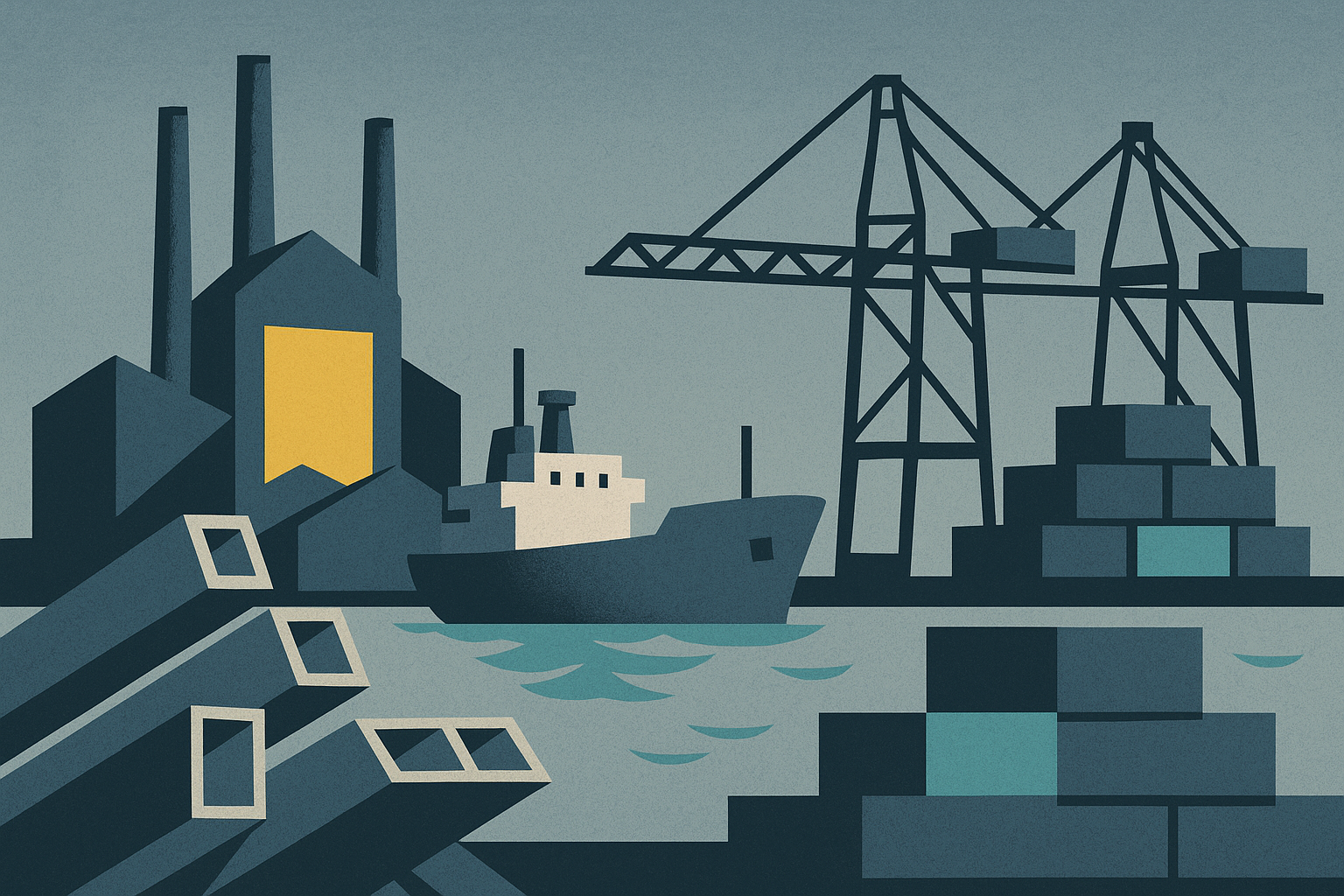The UK’s struggling steel sector is confronting what industry leaders describe as the “biggest crisis in its history” following the European Union’s decision to double tariffs on all steel imports. This move aims to revitalise the EU’s steelmaking capacity.
As part of a broader strategy to initiate a “reindustrialisation of Europe”, EU commissioners have approved a proposal to impose 50% tariffs on all steel imports into the 27-member trading bloc and reduce its tariff-free import quotas. The measure is designed to bolster domestic production and shield EU steelmakers from an influx of inexpensive Asian imports, marking a significant shift in European trade policy. This development has left British steel producers in a precarious position, coming just months after Donald Trump implemented his own tariffs on the sector.
Last year, the EU accounted for approximately 1.9 million tonnes of UK-made steel exports, representing 78% of all UK steel exports. This has prompted the sector’s largest industry body to caution that its members face “an existential threat” that could spell the end for the 200-year-old industry.
Gareth Stace, director-general of UK Steel, stated, “This is perhaps the biggest crisis the UK steel industry has ever faced. The government must leverage our trading relationship with the European Union to secure UK country quotas or potentially face disaster.”
The newly imposed tariffs are the latest in a series of challenges for the UK’s largest steelmakers, who are also grappling with high energy prices and an increasingly protectionist trade environment. The UK’s industrial energy costs are the highest among major economies, putting steelmaking and other energy-intensive sectors at risk. Additionally, the industry is affected by the US’s tariff measures, which included a similar 50% levy on American steel imports in May.
These challenges contributed to the UK government’s decision to take control of British Steel in April. Although there are hopes for an exemption from the US tariffs, concerns persist that the UK may be inundated with cheaper Asian exports initially destined for the US. The EU’s restrictions have intensified fears that Asian steel will be redirected to the UK.
Stace added, “The UK Government must now recognise the urgent need to put in place its own measures to defend against a flood of imports. The probability of the EU’s measures redirecting millions of tonnes of steel towards the UK could be terminal for many of our remaining steel companies.”
Under the EU’s proposed changes, the levy on UK steel exporters would increase from 25% to 50%, and the tariff-free quota is set to be reduced to 18 million tonnes, a 44% decrease.
Industry minister Chris McDonald commented, “We will always defend our critical steel industry, which is why we are pushing the European Commission for urgent clarification of the impact of this move on the UK. It’s vital we protect trade flows between the UK and EU, and we will work with our closest allies to address global challenges rather than adding to our industries’ woes. This government has shown its commitment to our steel industry by securing preferential access to the US market for our exporters, and we continue to explore stronger trade measures to protect UK steel producers from unfair behaviours.”



